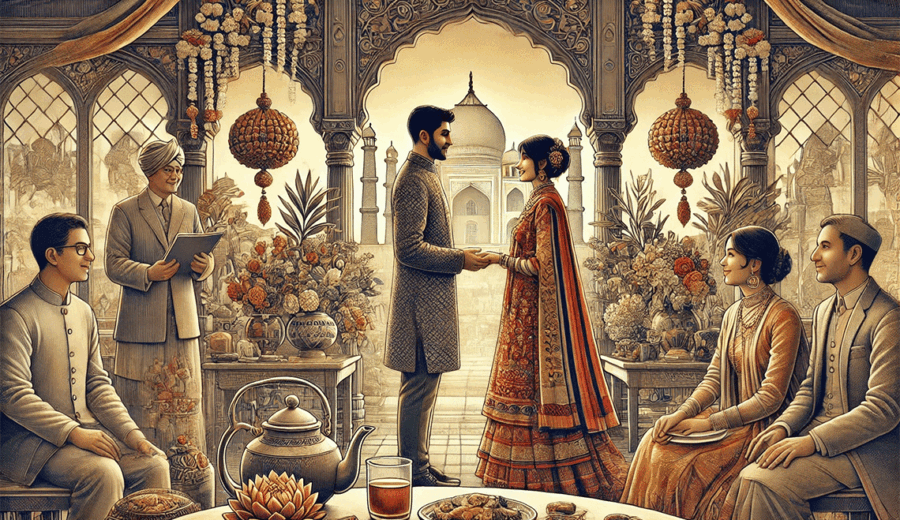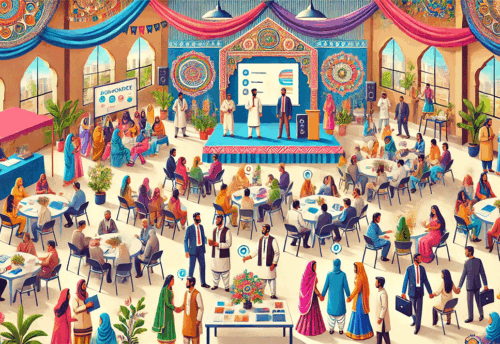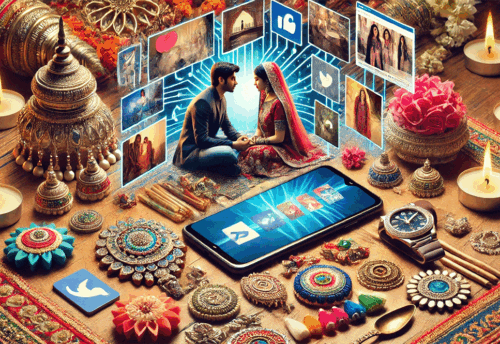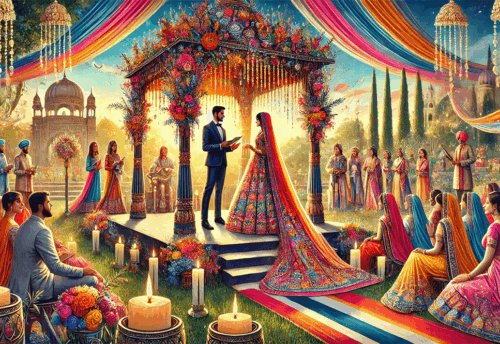
Arranged Marriages in the UK
Arranged Marriages in the UK
Arranged marriages, a long-standing tradition in South Asian cultures, have evolved significantly over time, especially within the multicultural environment of the UK. While rooted in the importance of family bonds and cultural preservation, the modern approach often blends traditional values with personal choice, adapting to the dynamics of contemporary society.
The Tradition of Arranged Marriages and Its Evolution in a Western Context
Historically, arranged marriages were orchestrated by families who sought compatible matches based on factors like caste, religion, social status, and family reputation. The primary goal was to ensure a harmonious union that upheld cultural traditions and familial ties.
In the UK, arranged marriages have evolved to:
- Focus on Compatibility: Families now prioritize shared values, education, and mutual interests over rigid traditional criteria.
- Introduction Meetings: Modern arranged setups often involve casual introductions in neutral environments, such as coffee shops, to allow the couple to decide for themselves.
- Use of Technology: Matchmaking apps and websites tailored for South Asian communities have revolutionized the process, offering individuals more autonomy while still involving families.
- Acceptance of Choice: There is greater flexibility for individuals to reject or accept proposals without stigma, fostering a balance between tradition and self-agency.
Arranged marriages in the UK are no longer solely about family-driven decisions but are evolving into a collaborative process that respects individual preferences.
Parents’ Involvement Versus Individual Choice
The essence of arranged marriages lies in the involvement of parents and extended families, yet the dynamic is shifting to accommodate the desires of the younger generation.
- Traditional Role of Parents:
- Parents act as facilitators, leveraging their networks to identify suitable matches.
- They ensure compatibility between families, considering shared values and cultural alignment.
- Modern Role of the Couple:
- The couple is encouraged to meet and communicate independently before making decisions.
- Personal preferences regarding career goals, lifestyle, and personality are given significant weight.
- Striking a Balance:
- Families often negotiate to find a middle ground where parental guidance complements the couple’s autonomy.
- Mutual respect and open dialogue are key to ensuring both generations feel valued in the process.
This blend of parental involvement and individual choice allows for a smoother transition from traditional to contemporary approaches to marriage.
Common Myths and Misconceptions About Arranged Marriages
Arranged marriages are frequently misunderstood, especially in Western contexts. Dispelling these myths is crucial for fostering a deeper understanding of their cultural significance.
- Myth: Arranged marriages are forced.
- Reality: Modern arranged marriages prioritize consent and personal choice. Couples have the freedom to accept or decline matches without pressure.
- Myth: Love cannot exist in arranged marriages.
- Reality: Many arranged marriages are based on mutual respect and understanding, with love growing naturally over time.
- Myth: Arranged marriages are outdated and oppressive.
- Reality: The practice has evolved to incorporate modern values, offering a balance of tradition and progressive thinking.
- Myth: Only uneducated or conservative families arrange marriages.
- Reality: Families from all educational and social backgrounds participate in arranged marriages, focusing on shared values rather than outdated norms.
These misconceptions often stem from stereotypes, ignoring the nuanced, evolving nature of arranged marriages today.





Leave a Reply